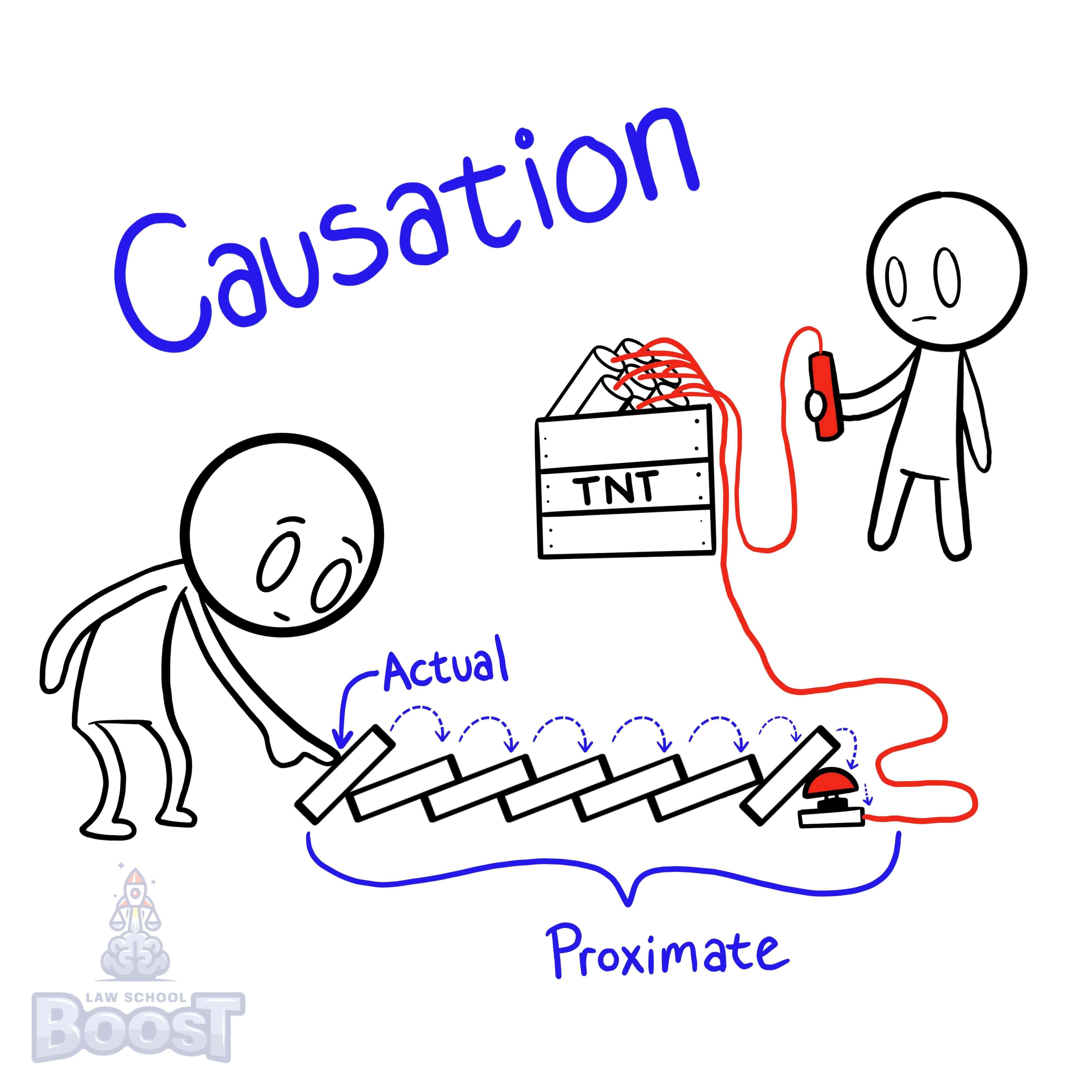💕
Criminal Law • Murder
CRIMLAW#007
Legal Definition
The killing must be committed by a co-felon or his "agent" for the felon to be liable.
Plain English Explanation
Imagine Bob and Sam rob a bank and, while they are robbing the bank, a police officer accidentally shoots and kills an innocent bystander who was standing near Bob. Under the Felony Murder Rule ("FMR"), we have a felony being committed and we have someone who died. But the person died because of the direct actions of someone other than the defendants (the cop). So what do we do? There are two theories:
Under the proximate cause theory, Bob and Sam can be charged with murder under the FMR because their felony was the <proximate cause> of the victim's death. In other words, even though the cops shot the victim, they only shot the victim in response to the chaos that Bob and Sam caused while committing their felony.
The second theory is agency theory, which would not hold Bob and Sam responsible for someone being killed by a non-accomplice. In other words, in agency theory jurisdictions, only the defendant or agents of the defendant (accomplices) can trigger the FMR.
Under the proximate cause theory, Bob and Sam can be charged with murder under the FMR because their felony was the <proximate cause> of the victim's death. In other words, even though the cops shot the victim, they only shot the victim in response to the chaos that Bob and Sam caused while committing their felony.
The second theory is agency theory, which would not hold Bob and Sam responsible for someone being killed by a non-accomplice. In other words, in agency theory jurisdictions, only the defendant or agents of the defendant (accomplices) can trigger the FMR.
Visual Aids

Related Concepts
What are the five inherently dangerous felonies that trigger the Felony Murder Rule?
What is a homicide?
What is deliberation?
What is imperfect self-defense?
What is involuntary manslaughter?
What is malice aforethought?
What is murder?
What is premeditation?
What is the Felony Murder Rule?
What is the proximate cause theory of the Felony Murder Rule?
What is voluntary manslaughter and what is the test used to determine it?


